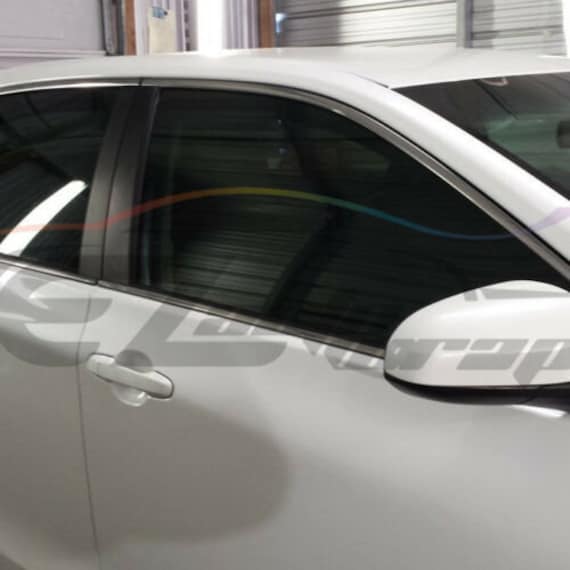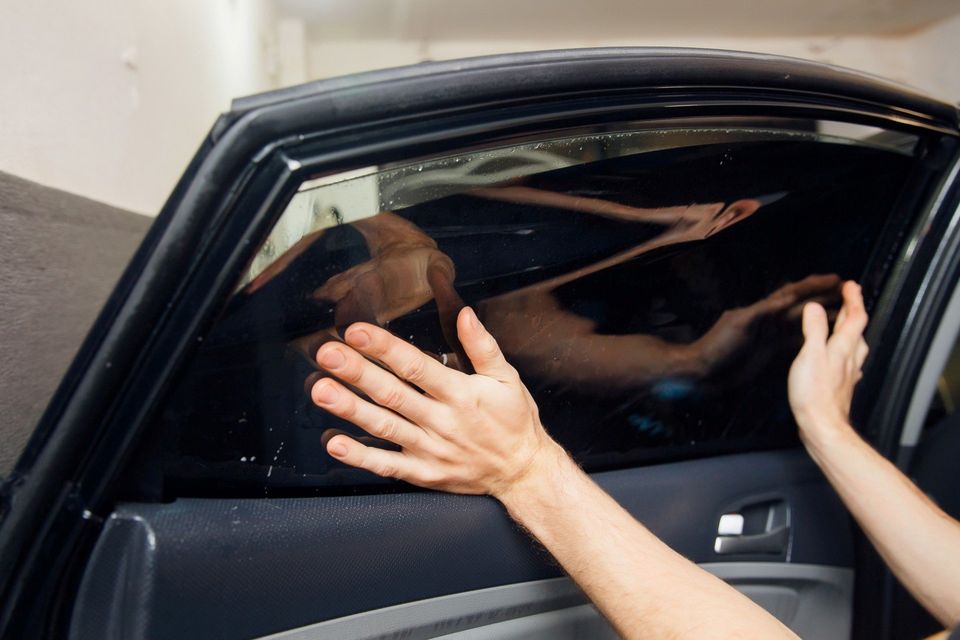How Window Tinting Can Improve Privacy and Reduce Heat in Your Car
How Window Tinting Can Improve Privacy and Reduce Heat in Your Car
Blog Article
Home Window Tinting Laws: What You Required to Know Before Tinting Your Auto
Recognizing window tinting laws is necessary for any kind of automobile owner considering tinting their cars and truck. Laws vary considerably from state to state, developing particular limitations for Visible Light Transmission (VLT) percents, specifically for front-side home windows and windshields. Failing to adhere to these laws can lead to fines, the requirement to get rid of the color, and issues with insurance coverage. As you contemplate improving your automobile's appearance and functionality, it is essential to comprehend not only the legal ramifications but likewise the practical factors to consider that come with picking the right tint. What factors should you focus on in your decision-making procedure?
Value of Recognizing Color Laws
Comprehending window tinting laws is vital for lorry owners to make certain conformity with state regulations. These laws dictate the permissible degrees of color darkness and reflectivity, which can significantly vary from one jurisdiction to another. Failing to follow these guidelines can cause fines, necessary elimination of the color, and potential difficulties throughout lorry inspections.
Moreover, comprehending these legislations assists automobile owners make educated choices regarding their tinting choices. Various sorts of window movies provide various advantages, such as UV defense, warmth denial, and glow reduction. Without knowledge of the legal restrictions, car owners run the risk of selecting items that may inevitably lead to legal concerns.
Furthermore, awareness of tinting regulations promotes a safer driving atmosphere. window tinting. Exceedingly dark tints can impair presence, enhancing the danger of accidents, specifically during the night or in adverse climate condition. Regulation enforcement agencies additionally utilize these policies to ensure roadway safety, making conformity not just a legal commitment however an individual obligation
State-Specific Tint Laws
Each state in the U.S. has developed its very own specific laws regarding window tinting, mirroring a diverse range of requirements and needs. These policies can differ dramatically, affecting just how vehicle proprietors come close to installation and compliance. Some states enable darker colors on back home windows while imposing rigorous limits on front-side windows.
Furthermore, policies frequently define allowed color products and shades. Specific states forbid reflective colors completely, while others may permit them to a restricted level. Some jurisdictions mandate that lorries with colored home windows present a sticker label indicating conformity with state legislations, supplying a clear identification for law enforcement.
Enforcement of these regulations additionally differs; some states are extra aggressive, carrying out arbitrary checks, while others depend on problems or visible violations to initiate enforcement. Lorry proprietors must realize that failing to abide with state-specific tint regulations can lead to fines, compulsory removal of prohibited tints, or both.

Lawful Color Percentages
Figuring out the legal tint percentages is essential for automobile proprietors seeking to adhere to state policies. Each state has certain regulations regulating just how much light must travel through the windows of an automobile, which is shared as a percentage referred to as Noticeable Light Transmission (VLT) This percentage varies substantially throughout states and can depend on the sort of home window-- front side, rear side, and windshield.
As an example, some states allow just 20% VLT on front side home windows, while others might allow as much as 50%. Windscreen tinting is frequently extra restricted, with several territories allowing image source just a narrow band of color at the top of the windscreen. On the other hand, rear windows usually have a lot more lax regulations, with some states permitting darker tints.
It is essential for car owners to familiarize themselves with their local regulations to stay clear of potential legal issues. This consists of understanding exactly how VLT is measured, as it can vary based upon the type of window film used. Remaining notified about these regulations guarantees compliance and advertises safe driving conditions for both the lorry proprietor and others on the roadway.
Consequences of Non-Compliance
Falling short to abide by home window tinting legislations can lead to considerable consequences for automobile proprietors. The most instant effect is the capacity for website traffic quits and citations from police. Officers trained to recognize unlawful color levels might release penalties, which can vary by territory but typically range from moderate to significant quantities. Repeated infractions may cause increased fines, consisting of greater fines or extra factors on a chauffeur's permit.

Insurance coverage companies may additionally penalize for non-compliance, as unlawful modifications can be deemed a breach of policy terms. This can impact coverage prices or cause complications in cases if an occurrence takes place.
Eventually, the consequences of non-compliance prolong past immediate monetary fines; they can influence a driver's insurance prices, legal standing, and total car worth, emphasizing the relevance of adhering to regional window tinting laws.
Tips for Finding Tinting Options
Recognizing the effects of non-compliance highlights the significance of making educated options when choosing home window tinting alternatives. Familiarize yourself with your state's site certain legislations regarding tint darkness and reflectivity. Each state has one-of-a-kind regulations that dictate the acceptable restrictions, so ensure you remain within these standards to stay clear of charges.
Secondly, take into consideration the kind of color product. Options include colored, metalized, and ceramic tints, each offering varying levels of warmth denial, UV protection, and toughness. Ceramic tints offer superior warmth resistance without interfering with electronic devices, making them a preferred choice.
In addition, analyze your primary objective for tinting. If you look for enhanced personal privacy, select darker colors; nevertheless, maintain in mind that this might impact exposure at evening. Conversely, if glare decrease and UV protection are your primary issues, lighter colors may be adequate.
Finally, speak with an expert installer who is experienced about neighborhood guidelines and can suggest high-quality materials suited to your demands (window tinting). Taking these elements into account will certainly ensure you make a knowledgeable choice, ultimately improving both your vehicle's appearances and functionality
Verdict
In final thought, experience with window tinting legislations is important prior to using color to an automobile. By understanding special info legal needs and choosing ideal color products, lorry proprietors can attain visual improvement while remaining compliant with relevant legislations.
Comprehending home window tinting regulations is crucial for any vehicle owner taking into consideration tinting their vehicle.Comprehending window tinting legislations is essential for car proprietors to ensure compliance with state regulations. Some states allow darker tints on back home windows while enforcing rigorous limitations on front-side home windows.
In contrast, back home windows normally have a lot more tolerant laws, with some states permitting darker colors. (window tinting)
In verdict, experience with window tinting legislations is crucial prior to using tint to an automobile.
Report this page